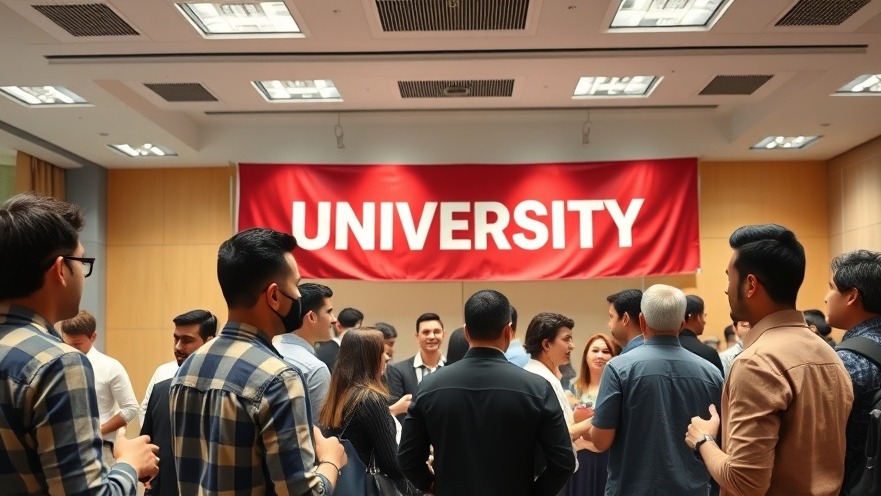
Seeking Scientific Asylum: The Trend of American Researchers Moving Abroad
As the political landscape in the United States shifts, many American researchers find themselves in a precarious position. Aix-Marseille University has initiated a program known as the "Safe Place for Science," aimed at luring researchers away from the U.S. who feel increasingly threatened by government policies. The program has already received nearly 300 applications from American scholars looking for a more stable environment to conduct their research.
Historical Context: Understanding the American Academic Landscape
Historically, the U.S. has been seen as a global hub for academic research. Universities across the nation have attracted top talent with favorable funding policies and a culture of innovation. However, in recent years, particularly under the Trump administration, there have been significant shifts. Federal funding has become scarce, and political pressure has increased on institutions to conform to certain ideologies regarding research fields. This shift is pushing many scholars to seek alternatives in more supportive environments.
The Impact of Current Policies: Cuts and Censorship in Research
The move from the U.S. to foreign institutions isn't just a trend; it's a reaction to specific policy changes. Under the current administration, academic funding has been frozen for numerous programs that do not align with the administration's political agenda. Some researchers have reported that their existing grants were revoked and new grant applications are being scrutinized based on keywords that signal which areas of research are deemed acceptable. This chilling effect has fostered an atmosphere of fear and uncertainty, leading scholars like Brian Sandberg to contemplate leaving the U.S. for better research opportunities and academic freedom.
International Response: Other Countries Engaging American Talent
It's not just France that is welcoming U.S. researchers. Countries like Canada, Germany, and Australia are also eager to attract academics looking for a refuge from the political climate in the U.S. These nations are showcasing their commitment to research in fields such as climate change and health, promising not only funding but also an open environment for innovative ideas. Aix-Marseille, for instance, has pledged nearly $18 million specifically for 15 U.S.-based researchers across diverse fields. The competition among these nations to attract talent could have long-lasting impacts on the academic landscape.
The Brain Drain: What It Means for the U.S. and Global Academia
The potential mass exodus of American researchers poses serious questions about the future of U.S. academia. If talented scholars depart for more accepting environments, this brain drain could harm not only American institutions but the nation's global standing in scientific research. Conversely, foreign universities could experience an unprecedented influx of talent, thereby enhancing their own research capabilities significantly.
Future Predictions: The Long-Term Consequences of Academic Migration
As more American researchers consider opportunities abroad, it is essential to reflect on the potential consequences of such migrations. If the pattern continues, not only could the U.S. lag in research output and innovation, but it may also shift into a secondary position in global academic rankings over time. Keeping top talent and maintaining an open research ecosystem is vital for any nation's future. The question remains: will U.S. policies adapt to retain researchers, or will we see a continued trend of American academia seeking sanctuary overseas?
In conclusion, the academic landscape in the United States is shifting, and it is crucial for policy-makers to recognize the implications of their actions. For researchers seeking environments conducive to their vocation, options are growing worldwide. This story is a reminder of how political environments can profoundly affect education and research success.
 Add Element
Add Element  Add Row
Add Row 



 Add Row
Add Row  Add
Add 


Write A Comment